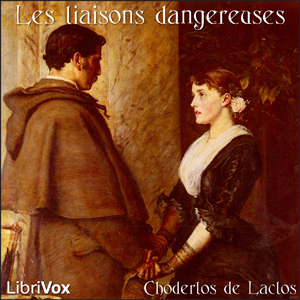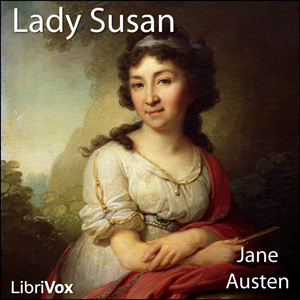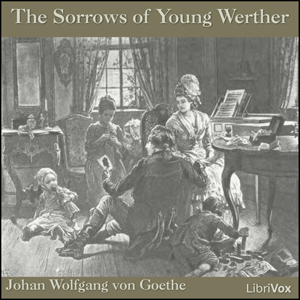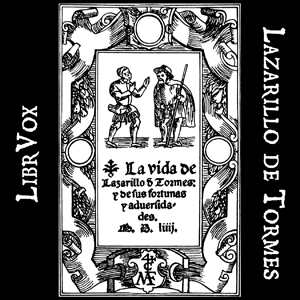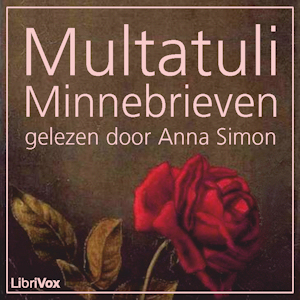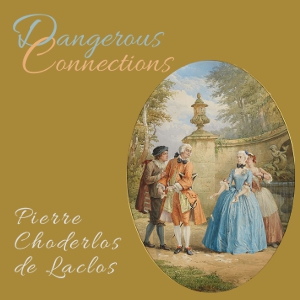Dear Enemy is the sequel to Jean Webster's novel Daddy-Long-Legs. The story as presented in a series of letters written by Sallie McBride, Judy Abbott's college mate in Daddy-Long-Legs. Among the recipients of the letters are the president of the orphanage where Sallie is filling in until a new director can be installed, his wife (Judy Abbott of Daddy-Long-Legs), and the orphanage's doctor (to whom Sallie addresses her letters: "Dear Enemy"). (Summary from Wikipedia)
24 episodes
Die Leiden des jungen Werther beschreibt die unglückliche Liebe eines jungen Mannes (Werther) zu einer verlobten, später verheirateten Frau. Der Roman ist aus einer radikal subjektiven Perspektive geschrieben: er besteht nur aus Briefen von Werther vor allem an einen Freund namens Wilhelm. Erst im letzten Teil des zweiten Buches tritt ein Erzähler hinzu. Anhand der Briefe kann der Leser sowohl dem Verlauf der Handlung als auch den Gefühlen Werthers folgen, der immer verzweifelter wird, bis es schließlich in einer Katastrophe endet.
Der Roman besteht aus zwei Büchern, die aber eher als zwei Teile eines einzigen Romans anzusehen sind.
(Zusammenfassung von Rainer)
11 episodes
Daddy-Long-Legs is a 1912 novel by an American writer Jean Webster, written in the form of letters. It follows the protagonist, a young girl named Jerusha “Judy” Abbott, through her college years. She writes the letters to her benefactor, a rich man whom she has never seen.
(Summary from Wikipedia)
9 episodes
D'amants qu'ils étaient, le Vicomte de Valmont et la Marquise de Merteuil sont restés complices dans leurs projets de liaisons et confidents dans leur correspondance, chacun préservant sa réputation aux yeux du monde : d'homme irrésistible pour l'un, de femme respectable pour l'autre.
Ils ont, cette fois-ci, jeté leur dévolu sur la Présidente de Tourvel, jeune femme vertueuse et dévote dont l'époux demeure au loin et Cécile Volanges, adolescente à peine sortie du couvent, promise au Comte de Gercourt, dont s'éprend le Chevalier Danceny.
Si, à force de manipulations, leurs projets aboutissent, la première fera la gloire de son vainqueur, la seconde, le déshonneur de son mari lorsque la chose sera rendue publique.
Suivons donc le courrier de ces protagonistes, de leurs parents, de leurs amis. Pourrons-nous « ne pas frémir en songeant au malheur que peut causer une seule liaison dangereuse » ?
19 episodes
Jane Austen demonstrated her mastery of the epistolary novel genre in Lady Susan, which she wrote in 1795 but never published. Although the primary focus of this short novel is the selfish behavior of Lady Susan as she engages in affairs and searches for suitable husbands for herself and her young daughter, the actual action shares its importance with Austen’s manipulation of her characters' behavior by means of their reactions to the letters that they receive. The heroine adds additional interest by altering the tone of her own letters based on the recipient of the letter. Thus, the character of Lady Susan is developed through many branches as Austen suggests complications of identity and the way in which that identity is based on interaction rather than on solitary constructions of personality. (Summary from Wikipedia)
42 episodes
The Sorrows of Young Werther (German, Die Leiden des jungen Werther, originally published as Die Leiden des jungen Werthers) is an epistolary and loosely autobiographical novel by Johann Wolfgang von Goethe, first published in 1774. The story follows the life and sorrows of Werther after he falls desperately in love with a young woman who is married to another. A climactic scene prominently features Goethe's own German translation of a portion of James Macpherson's Ossian cycle of poems, which had originally been presented as translations of ancient works, and was later found to have been written by Macpherson. (Introduction by Wikipedia and Barry Eads)
13 episodes
Sara Burgerhart is een jong meisje dat correspondeert met haar vriendinnen, aanbidders en familie. Die mensen schrijven elkaar ook allemaal. Het boek bestaat uit 175 brieven van 24 personages. Soms lichtvoetig, dan beschouwend. Sara streeft ernaar een goede burger te zijn, een eerlijk mens en een hartelijke vriendin. Ze zoekt haar eigen weg en probeert voor zichzelf denken. Dat is typisch voor de Verlichting, een tijdperk waarin niet langer de waarheden van kerk en overheid zonder meer voor waar aangenomen werden, maar de overtuiging post vatte dat je de waarheid zelf moet vinden met behulp van de ratio (de rede, het verstand). (Carola Janssen)
35 episodes
Bill is in training camp, preparing to go off to World War I. This book is a collection of love letters written to his sweetheart, Mable. The letters are humorous, mis-spelled, and have many stories of life in an army camp - all from Bill's unique perspective. (summary by Rob Kunkel)
6 episodes

The Heroides, also known as the Heroines, the Letters of the Heroines or simply as Epistles are a very famous collection of poems by Ovid, not only for their interesting subject - letters by famous mythological characters addressed to their beloved ones - but also because it's considered by some the first example of the Epistle as a literary genre - a statement made by Ovid himself in his Ars Amatoria. The book as we have it nowadays consists of 21 letters, divided in two parts. The first is composed of fifteen letters presented as if written by a female mythological character to her lover; the second part, also known as Double Heroides, brings three pairs of letters, being the first in each pair supposedly written by a hero, and the second one, the heroine's response to the first letter. Along the Metamorphoses and the Ars Amatoria, the Heroides were one of the most influential works of Ovid, not only in the Antiquity, but also throughout the Middle Ages and up to Modern times. (Summary by Leni)
21 episodes
The endeavour of small Greek historians to add interest to their work by magnifying the exploits of their countrymen, and piling wonder upon wonder, Lucian first condemned in his Instructions for Writing History, and then caricatured in his True History, wherein is contained the account of a trip to the moon, a piece which must have been enjoyed by Rabelais, which suggested to Cyrano de Bergerac his Voyages to the Moon and to the Sun, and insensibly contributed, perhaps, directly or through Bergerac, to the conception of Gulliver’s Travels. The Icaro-Menippus Dialogue describes another trip to the moon, though its satire is more especially directed against the philosophers. (Summary from the Introduction)
6 episodes
The Expedition of Humphry Clinker was the last of the picaresque novels of Tobias Smollett, and is considered by many to be his best and funniest work.
Published in London on 17 June 1771, it is an epistolary novel, presented in the form of letters written by six different characters: Matthew Bramble, a Welsh Squire; his sister Tabitha; their niece and nephew, Jery and Lydia Melford; Tabitha's maid Winifred Jenkins; and Lydia's suitor, Wilson.
Much of the comedy arises from differences in the descriptions of the same events by different participants. Attributions of motives and descriptions of behavior show wild variation and reveal much about the character of the teller. The setting, amidst the high-society spa towns and seaside resorts of the 18th century provides his characters with many opportunities for satirical observations on English life and manners. (Summary by Wikipedia)
85 episodes
Si potrebbe chiamare un romanzo epistolare: è un misto di pagine di diario e di lettere che il protagonista, Rinaldo Morelli, un estimatore del poeta latino Orazio, scrive durante un'estate a Corsenna, un ameno paesello toscano in collina, frequentato da diversi villeggianti dai quali il nostro cerca di tenersi bene alla larga. Ma saranno loro ad andare in cerca di lui e a riempire la pagine dei suoi scritti... soprattutto una certa Galatea. (Summary by Riccardo Fasol)
20 episodes
La vida de Lazarillo de Tormes y de sus fortunas y adversidades (más conocida como Lazarillo de Tormes) es una novela española anónima, escrita en primera persona y en estilo epistolar (como una sola y larga carta), cuya edición conocida más antigua data de 1554. En ella se cuenta de forma autobiográfica la vida de un niño, Lázaro de Tormes, en el siglo XVI, desde su nacimiento y mísera infancia hasta su matrimonio, ya en la edad adulta. Es considerada precursora de la novela picaresca por elementos como el realismo, la narración en primera persona, la estructura itinerante entre varios amos y la ideología moralizante y pesimista. (Resumen de Wikipedia)
5 episodes
Op het eerste gezicht is Minnebrieven (gepubliceerd in 1861) een brievenroman, met als drie hoofdrolspelers Max en zijn vrouw Tine, en het jonge meisje Fancy, Max' muze. Het is een vervolg op het 2 jaar daarvoor verschenen werk Max Havelaar, ook wat betreft de aanklacht tegen de wantoestanden in het toenmalige Nederlands-Indië. Multatuli springt opnieuw heen en weer tussen fictie en realiteit.Willem Frederik Hermans noemt Minnebrieven "een van de grilligste, wildste boeken die de Nederlandse literatuur rijk is." Volgens Multatuli zelf is het "een getrouwe spiegel van een maand aandoeningen en indrukken. Er bestaat geen boek dat waarder is". En: "’t is alles! Poesie, sarcasme, politiek, wellust, scherpte, logica, godsdienst, alles." (door Anna Simon)
11 episodes
Before becoming the author of such classics as Sense and Sensibility, Pride and Prejudice, and Emma, Jane Austen experimented with various writing styles as a teenager in the early 1790s. This is a collection of her juvenilia, including the epistolary novels Love and Freindship, Lesley Castle, and Lady Susan, as well as her comic History of England and some shorter pieces. (Summary by Elizabeth Klett)
18 episodes
The church has lost out on a valuable piece of land through wars and transfers. Father Benwell is determined to reclaim that property by the conversion of the owner, Lewis Romayne. Enter beautiful Stella, who captures the heart of Romayne. Should Stella capture the love and devotion of Romayne, Father Benwell's scheme would fail, and that is something that he can not allow. Complicating things is the fact that both Romayne and Stella are hiding their own terrible secrets.The Black Robe is an 1881 epistolary novel by famed English writer, Wilkie Collins. The book centers around the misadventures of Lewis Romayne, and is also noted for a perceived anti-Catholic bias (Summary by Mike Zane and Wikipedia)
42 episodes
Eine Herrengesellschaft trifft sich zu einer mehrtägigen Jagd auf Schloß Vogelöd. Einem der Gäste, dem Grafen Oetsch, wird nachgesagt, er habe vor einigen Jahren seinen Bruder erschossen. Die Witwe des Bruders, die wiederverheiratete Baronin Safferstätt, wird ebenfalls erwartet ...
Die Ereignisse werden aus der Sicht der Gastgeber, des Ehepaars von Vogelschrey und der anderen Anwesenden berichtet.
(Zusammenfassung von Hokuspokus)
37 episodes
A translation of 'Les Liaisons dangereuses' alternative title 'Dangerous Liasons'
Everyone probably has Glenn Close and John Malkovich in mind, but for those who have not seen the movie, this epistolary fiction describes how a young girl, Cécile de Voanges, walks on the road to perdition, and is just a toy in the Vicomte de Valmont's and the Comtesse de Merteuil's hands. (Summary by Nadine)Readers:Narrator, Mme de Volanges: Nadine Eckert-BouletCécile de Volanges: SaabMarquise de Merteuil: AvailleVicomte de Valmont: Martin GeesonPrésidente de Tourvel: Elizabeth KlettChevalier de Danceny: Max KörlingeMaréchale de **: Lucy PerryMadame de Rosemonde: Rhonda FedermanAzolan, Monsieur Bertrand: ToddHWComte de Gercourt: Nolan FoutPère Anselme: SzindbadAnonymous: David LawrenceEditors: Phil Chenevert and Nadine Eckert-Boulet
36 episodes
"Diva", publicado em 1864, um dos três "perfis de mulher" de José de Alencar, tem como personagem principal e narrador Augusto Amaral, que conta, através de cartas, a história de seu encontro e paixão pela jovem Emília, rica herdeira, acostumada a ter todos as suas ordens e caprichos atendidos. Publicado logo após "Lucíola", obra de maior sucesso, "Diva" tem em comum com aquele o pano de fundo, também a corte imperial brasileira, no Rio de Janeiro, e a crítica à sociedade frívola frequentadores dos salões. "Diva" é conectado a "Lucíola" também por duas referências internas à obra: por um lado, a dedicatória de "Diva" refere a mesma senhora que teria recolhido e publicado as cartas de Paulo em "Lucíola"; por outro, o próprio romance "Diva" é um apanhado de cartas, desta vez endereçadas a Paulo, narrador de Lucíola, O terceiro desses romances urbanos acerca da situação da mulher foi "Senhora", publicado mais de dez anos depois. - Summary by Leni
21 episodes

The Letters of a Portuguese Nun (Les Lettres Portugaises) were first published anonymously in Paris in 1669. The five passionate letters in book form were a publishing sensation since their appearance, with five editions in the first year, followed by more than forty editions throughout the 17th century. A Cologne edition of 1669 stated that the Marquis de Chamilly was their addressee, but, aside from the fact that she was female, the author's name and identity remained unknown. The letters were translated in several languages, and set a precedent for sentimentalism in European culture at large, and for the literary genres of the sentimental novel and the epistolary novel into the 18th century. The interest in the Letters was so strong that the word "portugaise" became synonymous with "a passionate love-letter" in the 17th century. The authorship of the work was assigned to Mariana Alcoforado, a Portuguese nun, as early as the 18th century. During the 20th century, however, many scholars have supported the idea that they are a work of epistolary fiction written by Gabriel-Joseph de La Vergne, comte de Guilleragues, a French politician, who had been secretary of the King's Chamber and also director of the Gazette de France. Nevertheless, any doubts about the authorship do not detract from the beauty and power of the letters themselves, presented here in a prose translation followed by a versified one. - Summary by Leni
11 episodes
With twenty two letters, addressed to various already deceased authors, Andrew Lang discusses literary subjects with his usual humour and acidity. The impulse for the writing of the letters came, almost as a joke, from the editor of the 'St. James's Gazette,' and sixteen of the letters collected in the volume appeared first in that journal. According to the author, "some of the Letters are written rather to suit the Correspondent than to express the writer's own taste or opinions"; in all of them, though, the reader will find the charming wit of their author. (Summary by Leni)
22 episodes
Pamela, tells the story of a 15-year old maidservant named Pamela Andrews, whose country landowner master, Mr. B, makes unwanted advances towards her after the death of his mother. He abducts her, locks her up in one of his estates, and attempts to seduce and rape her. She rejects him but starts to realise that she is falling in love with him. She then attempts to build a relationship with him and to fit in with upper class society. This is a continuation of "Pamela; or Virtue Rewarded". (Michele Eaton)
114 episodes
The Laodicean (someone whose religious beliefs are “lukewarm”) of the title is Paula Power who bought the ancient castle De Stancy which she is determined to restore. Being of a modern frame of mind, she has the telegraph connected to the castle – and uses it all the time in the course of the story.
George Somerset is a young architect who is invited to compete for the chance of the commission to restore the castle and who falls in love with Paula.
However, the brother of Paula’s great friend Charlotte De Stancy – of the aristocratic family that once owned the castle – aided by his villainous illegitimate son, sets out to win Paula for himself.
Although Paula likes the idea of being a De Stancy, she is drawn to George from the start. The various machinations of De Stancy and his son keep the narrative moving along at a fast pace.
Summary by Simon Evers
58 episodes
"Every fancy which dwells much with the unborn and immortal characters of Fiction must ask itself, Did the persons in contemporary novels never meet? In so little a world their paths must often have crossed, their orbits must have intersected, though we hear nothing about the adventure from the accredited narrators. In historical fiction authors make their people meet real men and women of history—Louis XI., Lazarus, Mary Queen of Scots, General Webbe, Moses, the Man in the Iron Mask, Marie Antoinette; the list is endless. But novelists, in spite of Mr. Thackeray’s advice to Alexandre Dumas, and of his own example in “Rebecca and Rowena,” have not introduced each other’s characters" (from the Introduction). In this volume, Andrew Lang shows, what a letter from one fictional character to another might look like.
24 episodes

Although this book may not have the immediately recognizable title of, say, “Rip Van Winkle” or “Legend of Sleepy Hollow,” this book deserves its place among the pantheon of Washington Irving’s classics. Irving, who traveled extensively in his youth and throughout his life, was given a firsthand look into the lives of two great writers of the Empire: Sir Walter Scott and Lord Byron.
Irving first chronicles his visit to Abbotsford, the home of Sir Walter Scott, whom he notes had not, at the time of his stay, yet received his title of “baronet.” Scott gives Irving a personal tour not only of his home but of the surrounding neighborhoods and landmarks that are a part of Abbotsford. We get a unique glimpse into the private life of the celebrated writer and the reverence the people of his time held him in.
Irving next moves on to Newstead Abbey, the home of the then-late Lord Byron. His travels are guided by Colonel Wildman, the individual who purchased Newstead Abbey following Byron’s death, and who restored the building to its former glory. In this portion of the book we learn of the fantastic and bizarre Byron family and its connection to Robin Hood and the famed locales of Sherwood Forest and Nottingham.
Few American writers gained famed for their extensive work outside of the United States. Washington Irving was unique in many respects, not the least of which was his enthusiastic curiosity of the “homeland” of so many Americans who were born literally around the time America was. His detailed writings of life in the early 19th century and the changes that were already taking over the more rural areas, can’t help but make one yearn for the even simpler times prior to his visit.
(Summary by Greg Giordano)
18 episodes
This is the story of Caroline and Sibella, two female friends. Strong and smart women who try to make it in a man's world while keeping their values and loyalties intact. The only way to do that is to hide a few secrets. Yet secrets cannot remain hidden for ever, and everything has a price. This is both a social novel and a gothic novel. A true page turner with all the elements of a good 18th century novel: a woman locked in an estate, a hidden pregnancy, some politics of marriage, villains, sentimentality and thought provoking philosophy. Summary by Stav Nisser.
82 episodes
Known as Fyodor Dostoyevski's first novel, Poor Folk portrays the life of poor people and poverty in a general sense. This novel is short in comparison to most of Fyodor's other works and is applauded for its humanitarian views. The interesting part is how it is put together. The novel is written as a compilation of letters written between the two main characters. - Summary by afutterer
59 episodes
A collection of classic Russian literature from the mind of one of the world's well know authors. The collection includes Taras Bulba, St. John's Eve, The Cloak, How The Two Ivans Quarrelled, The Mysterious Portrait, and The Calash. - Summary by afutterer
27 episodes
This is a 1903 translation of Étienne Pivert de Senancour's immensely influential work Obermann. Although it was almost completely ignored by the reading public when it was first published during the period of Napoleonic Wars in 1804, it was rediscovered almost 30 years later by the Romantics, praised by none less than Balzac and George Sand, as well as Franz Liszt and other illustrious persons of that time period. Obermann is an epistolary novel in the form of a journal intime, in which the inner life of the main character is the most important element, rather than the physical action. The story spans ten years, in which Obermann describes historical events, the progress of philosophical ideas, and, most strikingly, his emotional development. A.E. Waite succeeds to translate this work in a fittingly poetic way, transporting haunting images of loneliness, nausée, and lack of orientation. - Summary by Carolin
58 episodes
This 1905 tongue-in-cheek book is ostensibly the letters of a dutiful son to his Chinese father describing his encounter with and experience of Western civilization in late nineteenth century London. The author is delightfully humorous. - Summary by david wales
15 episodes
Within these pages find passages from the "lost diaries" of a wide range of people: royal, regular, famous, infamous, historical, and fictional. - Summary by A. Gramour
20 episodes

“I had a friend who loved me;” but he has gone, and the “great gulf” is between us. After his death, I received a packet of manuscript with these few words:—“What I have written may appeal to you because of our friendship, and because, when you come to read them, you will seek to grasp, in these apparent confidences, an inner meaning that to the end will elude you. If you think others, not the many but the few, might find here any answer to their unuttered questionings, any fellowship of sympathy in those experiences which are the milestones of our lives, then use the letters as you will, but without my name. I shall have gone, and the knowledge of my name would make no one either wiser or happier.”
The writer was, by trade, a diplomatist; by inclination, a sportsman with literary and artistic tastes; by force of circumstances he was a student of many characters, and in some sense a cynic. He was also a traveler—not a great traveler, but he knew a good deal of Europe, a little of America, much of India and the further East. He spent some time in this neighborhood, and was much interested in the country and its people. There is an Eastern atmosphere about many of the letters, and he made no secret of the fact that he was fascinated by the glamour of the lands of sunshine. He died very suddenly by misadventure, and, even to me, his packet of letters came rather as a revelation.
- Summary by Frank Athelstane Swettenham
38 episodes
Es ésta una obra semiautobiográfica de Johann Wolfgang von Goethe, la cual ha recibido diferentes nombres: Las penas del joven...Los sufrimientos del joven...o simplemente “El joven Werther”. Werther, joven artista de gran sensibilidad, conoce a una mujer, Lotte, ya comprometida con Albert, de la cual se enamora perdidamente. Aquel va contando a su amigo de forma epistolar todos sus sentimientos.Goethe, consiguió con esta obra pasar de ser un autor desconocido a un autor célebre, autor de masas. Fue considerada uno de los trabajos más importantes en la Europa de la época. - Summary by Montse González.
14 episodes
Nuoren Wertherin kärsimykset (saks. Die Leiden des jungen Werthers, 1774) on Johann Wolfgang von Goethen kirjoittama kirjeromaani. Löyhästi omaelämäkerrallisesta romaanista kehkeytyi saksalaisen Sturm und Drang -liikkeen tärkeimpiä teoksia. Sillä oli myös vaikutusta myöhempään romantiikan kirjallisuuteen. Romaanin ansiosta Goethesta tuli yksi ensimmäisistä kirjallisuuden tähdistä jo elinaikanaan. - Summary by Wikipedia
13 episodes
La marquesa de Merteuil y el vizconde de Valmont, amantes en otro tiempo, aprovechan cualquier ocasión para ridiculizar la sociedad puritana y privilegiada en que viven, utilizando a todos aquellos que los rodean, y dejando atrás una larga lista de conquistas eróticas. La correspondencia entre estos dos personajes, en la que relatan sus hazañas, constituye el cuerpo central del relato, en el cual se inscriben las distintas subtramas. (Resumen de Wikipedia)
20 episodes

La vicenda trae origine dal suicidio di Girolamo Ortis, uno studente universitario nato a Vito d'Asio (Pordenone) il 13 maggio 1773 e morto il 29 marzo 1796. Foscolo mutò il nome di Girolamo in Jacopo, in onore di Jean-Jacques Rousseau. Nel paese nativo esiste tuttora la casa del giovane, ristrutturata dagli eredi a seguito del terremoto del Friuli del 6 maggio 1976.
Nel 1796 Foscolo redasse un Piano di Studj (insieme di opere lette o da leggersi, composte o da comporsi), in cui, tra le Prose originali, indicava un Laura, lettere, e aggiungeva: « Questo libro non è interamente compiuto, ma l'autore è costretto a dargli l'ultima mano quando anche ei nol volesse ». Una parte della critica ha ravvisato in quest'opera il nucleo originario del futuro romanzo, e tradizionalmente identificato in Isabella Teotochi Albrizzi la "Laura" del titolo.
Nel settembre 1798, quando si trovava a Bologna, Foscolo iniziò la pubblicazione del libro, affidandolo all'editore Marsigli, ma il 21 aprile 1799, a causa della guerra contro gli Austro-russi, lasciò la città per arruolarsi nella Guardia Nazionale mobile di Bologna. La pubblicazione si interruppe così alla quarantacinquesima lettera (queste prime epistole vanno dal 3 settembre 1797 al maggio 1798), ma l'editore volle che l'opera venisse completata e la affidò al bolognese Angelo Sassoli facendola poi pubblicare nel 1799 e ad insaputa dell'autore, prima con il titolo di Ultime lettere di Jacopo Ortis, poi con quello di Vera storia di due amanti infelici ossia Ultime lettere di Jacopo Ortis. (Summary by Wikipedia)
9 episodes

As the title suggests, this work does flirt with the supernatural. Yet it is essentially a political novel—a utopian experiment in a fictitious Balkan country, the Land of the Blue Mountains. The story spans the years from 1892 to 1909. It includes a beautiful love story and an adventure tale—a double rescue requiring strength, cunning, and cutting-edge technology. These various aspects are unified by the character of the hero, a purely admirable individual whom we love and admire from the very first and who acquires immense power. How he uses this power is, of course, the test of his worth. Writers of fiction find it much easier to create evil or despicable characters than admirable ones, and Stoker does include one splendid portrait of an individual we love to despise, but the good characters predominate, each one unique and cherished in a different way by the reader.
The pace of the narrative varies greatly from section to section because the author includes business meetings and legal documents in their entirety, his obsessive attention to minutiae slowing down the action for long stretches. Moreover, the mystery surrounding the shroud is drawn out almost to the point of tedium. However, when there is action, it rushes forward. The great diversity of character also enlivens the text, especially since the epistolary form allows us to hear each voice.
For a political interpretation, see Matthew Gibson's Dracula and the Eastern Question (Palgrave Macmillan, London, 2006).
15 episodes

Maria ficou viúva e os credores levaram a vida de luxo e abastança em que viviam no Rio de Janeiro. E ela e as 4 filhas, educadas para viver na cidade, têm que se mudar para a fazenda que restou para a família, lá na serra, no interior bravo. Passam então a viver em um velho casarão com ares de convento, onde a música que se escuta à noite é a da orquestra do coaxar dos sapos. As horas são de lenta monotonia e tédio, nesse exílio longe dos amigos e das festas. O único alento vem das cartas de uma amiga, recém voltada da Europa, encantada com o Brasil. Uma amiga que as faz ver que onde vivem não é o fim do mundo, mas um lugar onde as águas cantam, as revoadas e cantos de aves enchem os ares e a terra, uma vez trabalhada, é fértil e generosa. E estas cartas, verdadeiras aulas de bem viver, produzem um resultado surpreendente sobre o espírito indomável das cinco mulheres. Ali está o segredo de como transformar grotões incultos em lugares aprazíveis. Leitura deliciosa para quem quer cultivar rosas, violetas ou batatas; ou ainda criar galinhas, fazer estradas ou abrir caminhos para encontrar objetivo na vida. - Resumo por Rachel Moraes
33 episodes



